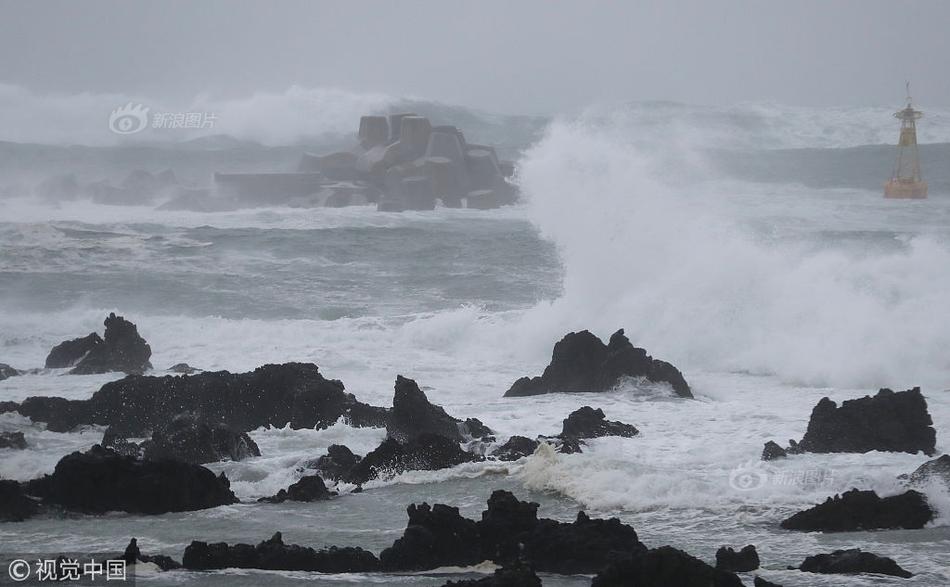984 ArchivesUN released a stark climate report on Wednesday.
The Emissions Gap Report 2020 is an assessment of a wide chasm: the gap between where human-created carbon emissions are expected to be in 2030 versus the cuts actually neededto substantially limit global warming. The latest report underscores that the coronavirus pandemic this year, which dramatically (though temporarily) slowed travel and depressed economic activity, will have a "negligible" impact on curbing the emissions that heat our planet.
The big picture remains clear. To avoid the worst consequences of climate change, countries must dramatically ramp up their commitments to slash carbon emissions. The current climate pledges, agreed upon by world nations at the historic Paris Agreement, aren't nearly enough. "We’re approaching the five-year anniversary of the Paris Agreement," said Anne Olhoff, a lead author of the UN report. "Nothing has happened in terms of strengthening climate commitments."
Just how much do commitments need to change? To get on the road to limit Earth's warming to a highly ambitious 2C, or 3.6F, above pre-Industrial temperatures, pledges to curb emissions must be tripled, the report concludes. And to meet the even more aspirational 1.5C target, climate ambition must increase by at least fivefold.
These realities can sound discouraging. But there's good news in the report, too, Olhoff said. Olhoff is also the head of climate policy and planning at UNEP DTU, a partnership between the UN Environment Programme, the Danish Ministry of Foreign Affairs, and the Technical University of Denmark.
This Tweet is currently unavailable. It might be loading or has been removed.
When peering into the climatic future, it's critical to remember that human-caused climate change is a problem that grows progressively worseas we emit more carbon. Fortunately, humanity can still limit the ever-worsening consequences of climate change, even if a well-publicized climate target (like 1.5C) is missed in the coming decade.
"The worst impacts of climate change happen with the most warming," climate scientist Zeke Hausfather recently told Mashable.
Yet, the latest Emissions Gap Report stresses it's still possibleto meet ambitious climate targets. The pandemic has provided a unique opportunity for global governments to invest in economic recoveries, similar to how the U.S. stimulated the economy and saved the American auto industry during the Great Recession of 2007-2009. This time, however, major government investments can be used to slash carbon emissions, specifically by investing in renewable energy infrastructure, electrifying transportation, reforestation, and ditching billions of dollars in fossil fuel subsidies.
"We need to make some change," said Olhoff. "The openings for doing so are enormous investments going into recovery."
A bold green recovery can slash a whopping 25 percent off predicted carbon emissions by 2030 (if we continue on the current trajectory), putting civilization on the road to stabilizing Earth's warming at 2C above pre-Industrial temperatures. There's already movement, though no official pledges at a UN summit:
President-elect Joe Biden proposes to spend $1.7 trillion over 10 years (less than the U.S. has already spent warring in Afganistan) on curbing emissions, and aims to achieve "net-zero emissions no later than 2050." This includes incentivizing the purchase of electric vehicles, advancing biofuels (which could be used to fuel aircraft), making buildings energy efficient, designing smaller and profoundly cheaper nuclear reactors, and beyond.
China is the largest emitter of greenhouse gases. The nation's leader, President Xi Jinping, said China aims to achieve carbon neutrality (meaning no net-release of carbon into the atmosphere) by 2060, which would require dramatically ramping down emissions in the coming decades.
UK prime minister Boris Johnson announced a bold green recovery plan, including billions of dollars in government investment and a 2030 ban on the sale of gas-powered cars, to achieve net-zero emissions.
So far, "126 countries covering 51 percent of global greenhouse gas emissions had adopted, announced or were considering net-zero goals," the UN report found. But if the U.S., the second-largest emitter of carbon on Earth, commits to a bold green recovery as the Biden-Harris plan proposes, that number jumps to 63 percent.
"It's a huge deal," stressed Olhoff.
Global nations have no time to waste. Commitments must translate into action promptly, but historically the wheels of governments tend to creak slowly — unless, for example, a nation is viciously attacked. What's more, a global leader, the U.S., is largely paralyzed by a broken senate. A retiring senator called the major lawmaking body a "graveyard for progress."
Yet a green recovery must start now because weaning countries off fossil fuels will take decades, as these ancient, carbonaceous fuels currently provide 84 percent of the world's energy. This means nations must significantly cut emissions over the next decade to get on the roadto meeting ambitious climate targets. If not, bold commitments become impossible to actually achieve.
"They can quickly become unfeasible or uncredible," said Olhoff.
It's also become clear that the pandemic won't have a meaningful impact on future emissions, nor will it cool the planet. Yes, emissions fell by a sizable seven percent this year, compared to 2019, but much of these emissions are expected to rebound as the pandemic wanes and economies recovery. The UN found the pandemic will result in just a 0.01C reduction in warming by 2050.
This Tweet is currently unavailable. It might be loading or has been removed.
World nations will have the opportunity to formally strengthen their climate commitments at a pivotal UN climate conference (called COP 26) in 2021. Godspeed.
"The year 2020 is on course to be one of the warmest on record, while wildfires, storms, and droughts continue to wreak havoc," Inger Andersen, the UN Environment Programme's executive director, said in a statement. “However, UNEP’s Emissions Gap report shows that a green pandemic recovery can take a huge slice out of greenhouse gas emissions and help slow climate change. I urge governments to back a green recovery in the next stage of COVID-19 fiscal interventions and raise significantly their climate ambitions in 2021."
If global nations don't commit to more ambitious carbon cuts, and emissions continue on a moderately rising trajectory, the world will warm in excess of 3C, or over 5.4F, this century, the UN report concluded.
That amount of warming would be catastrophic.
Already, at just over 1C of warming, wildfires are surging, Antarctica's Florida-sized Thwaites glacier has destabilized, sea levels are rising, droughts are worsening, and beyond.
"A 3C world will have catastrophic impacts for some, the loss of islands, corals, Arctic sea ice, some land glaciers, and not to mention changes in extreme weather," Glen Peters, the research director at the Center for International Climate and Environmental Research, told Mashable earlier this year.
"This is a world we want to avoid," said Peters.
It will take unprecedented, though still possible, efforts to turn the climate ship around. Until the pandemic hit, global carbon emissions were still on the rise. Atmospheric CO2 levels haven't been this high in at least800,000 years— though more likely millions of years. What's more, carbon levels are now rising at rates that are unprecedented in both the geologic and historic record.
 Turtle Beach Recon 50P gaming headset deal: 28% off
Turtle Beach Recon 50P gaming headset deal: 28% off
 'Chicken for Linda!' review: Don't miss this gorgeously animated culinary quest
'Chicken for Linda!' review: Don't miss this gorgeously animated culinary quest
 BMW initiates development of L3 autonomous driving in China · TechNode
BMW initiates development of L3 autonomous driving in China · TechNode
 New Jersey earthquake rattles New York City: The internet reacts
New Jersey earthquake rattles New York City: The internet reacts
 Dell S3422DWG Gaming Monitor deal: save $100 at Amazon
Dell S3422DWG Gaming Monitor deal: save $100 at Amazon
 Wombat butt biting sex habits could be helpful for its survival
Wombat butt biting sex habits could be helpful for its survival
 China greenlights 88 domestic games in July · TechNode
China greenlights 88 domestic games in July · TechNode
 Meta briefly blocked a local news organization critical of Facebook
Meta briefly blocked a local news organization critical of Facebook
 Best smart TV deal: Get the Insignia HD Fire TV for $90 at Amazon
Best smart TV deal: Get the Insignia HD Fire TV for $90 at Amazon
 Character AI reveals AvatarFX, a new AI video generator
Character AI reveals AvatarFX, a new AI video generator
 Now you can see China's solar power boom from space
Now you can see China's solar power boom from space
 Galaxy S23 Ultra unresponsive display issue: Why Samsung is blaming Google
Galaxy S23 Ultra unresponsive display issue: Why Samsung is blaming Google
 Temu launches in South Korea · TechNode
Temu launches in South Korea · TechNode
 Best robot vacuum deal: Get the Roborock Q5 Max for 53% off at Amazon
Best robot vacuum deal: Get the Roborock Q5 Max for 53% off at Amazon
 'Ripley' vs. 'The Talented Mr. Ripley': The tiny change that makes a big impact
'Ripley' vs. 'The Talented Mr. Ripley': The tiny change that makes a big impact
 Disney+ password sharing is finished in June
Disney+ password sharing is finished in June
 Apple smart home robot? There's one reportedly in the works.
Apple smart home robot? There's one reportedly in the works.
 Norrie vs. Diallo 2025 livestream: Watch Madrid Open for free
Norrie vs. Diallo 2025 livestream: Watch Madrid Open for free
 Evergrande New Energy Auto sees a total loss of $11.8 billion in 2021, 2022 · TechNode
Evergrande New Energy Auto sees a total loss of $11.8 billion in 2021, 2022 · TechNode
Finnish brewery made 1,000Japan's new ultraEven Hillary Clinton is creeped out by 'The Handmaid's Tale'WhatsApp's Snapchat Stories clone now has more users than SnapchatHoly crap, there's a backspace function on the iPhone calculatorThis tiny detail in 'The Dark Tower' trailer may mean the end of a popular fan theoryThe royal flag didn't fly halfLiterally every single rumour about the Queen's 'emergency meeting' at the palaceCry us a river: Tim Cook blames iPhone rumors for iPhone sales problemsEven Hillary Clinton is creeped out by 'The Handmaid's Tale'Early May weather pattern will be especially extreme in Northern HemisphereAny app with human interaction needs a block button, periodA WhatsApp group admin was arrested for sharing 'offensive' contentUberEATS starts serving in India, its fourth Asian marketWatch NASA's spectacular home movie of the first dive between Saturn and its ringsSnap may finally have a good answer to the Facebook questionPowerful geneWe made a 'Fargo' board game so you too can live a life of midwestern crimeThis is the most British picture ever takenAustralian Twitter communities are more diverse than you might think Apple's new 'Time to Walk' feature officially lands on Fitness+ Watch Richard Wright Act in Native Son by Sadie Stein Donna Stonecipher’s “Model City” by Nikkitha Bakshani The Golden Age of Soviet Children’s Art by Justin Alvarez Antifa.com now redirects to the White House’s website. This doesn’t mean anything. The Feelies at Maxwell’s by Josh Lieberman Too Hot, Too Greedy by Sadie Stein Elements of Style, Live by Sadie Stein Spring Fever by James S. Murphy Man Steals Books to Find Meaning of Life, and Other News by Sadie Stein 12 things the internet taught us we've been doing wrong our whole lives Required Reading for Bastille Day 'The Witcher' Season 3's ball costumes are packed with hidden clues 'Quordle' today: See each 'Quordle' answer and hints for July 4 Kerouac in the Sun by Vanessa Blakeslee Edward Gorey Does the Classics by Sadie Stein War of the Words 'The Idol' finale: Why that hairbrush twist makes zero sense Lips is a new social network where sexual expression is welcome Beckett on the Block, and Other News by Sadie Stein
2.0046s , 10156.453125 kb
Copyright © 2025 Powered by 【1984 Archives】,Warmth Information Network